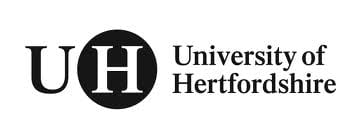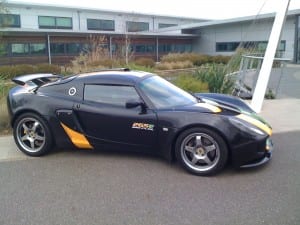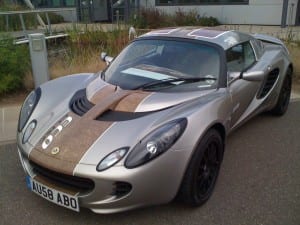 The EU FP7 project – MAAT Multibody Advanced Airship for Transport kicks off on 1st September 2011. Here’s another participant in the project, The University of Hertfordshire Dept. Aeronautical Engineering
The EU FP7 project – MAAT Multibody Advanced Airship for Transport kicks off on 1st September 2011. Here’s another participant in the project, The University of Hertfordshire Dept. Aeronautical Engineering
Organization: University of Hertfordshire UK
General Description
Aeronautical Engineering research at the University of Hertfordshire draws upon a great heritage going back to the original establishment of Hatfield Technical College by de Havilland Aircraft Company in 1951. The re- search areas in the School range from advanced computational modelling and simulation to experimental testing using large scale facilities. The typical research areas include Applied Aerodynamics in UH which is focused on the use of experimental and numerical aerodynamic techniques to understand and exploit fluid mechanics in real aerospace applications. There is ongoing research funded by EPSRC and industry in the field of renewable en- ergy that includes wind energy, wave energy, bio-fuels and fuel cell technology. Excellent design and manufac- turing capabilities such rapid prototyping are available to undertake product design and development assign- ments. Experimental facilities include 5 wind tunnels that offer testing facilities from low speed to supersonic wind tunnels, flight simulator, nanotester and SEM.
Main related expertise
Dr Rajnish Kaur Calay. Dr Calay is a Reader in Energy Systems and group leader of SET research group. She obtained her PhD in Applied Energy from Cranfield University in 1994 and joined the University of Hertford- shire in 1995. Current research interests are energy conservation, Alternative Energy sources, Fuel Cells and hy- drogen technologies. Dr Calay has been lead investigator of several EPSRC, EU and industrially funded research projects. She has participated as a work package leader in FLIE FP5 and SHIPMATES FP6 project. She was the section leader of Cost action on Industrial ventilation. She has been co-supervisor on other two projects develop- ing wind wave energy systems in collaboration with Thames Water and the EPSRC.
Related publications (others related publications in attachment): Bhinder, F. , Calay, R, Mustafa M, and Al-Zubaidy, S.N.(2009) , Feasibility Study of a fuel Cell& Turbo Power Plant for Aircraft Propulsion, European Air and Space Conference,. 26-29 October, 2009, Manchester, UK. F.Bhinder, M.Yajid Mustafa, M S Y Ebaid, R.K. Calay: Parametric study of the fuel cell-gas turbine combined cycle power plant Proceedings of TURBO EXPO 2006: ASME TURBO EXPO 2006 Power for Land, Sea & Air May 14-17, 2006 – Barcelona, Spain
Dr Yong Chen. Dr Chen is the subject group leader in Smart Technology and Condition Monitoring. He gained a BEng and an MSc from Taiyuan University of Technology followed by a PhD from the University of Birming- ham. Having been a post doctor research fellow in airplane structure at the Queen Mary and Westfield College he was appointed as a lecturer in materials and structures at the University of Hertfordshire. One of main areas of his expertise lies in his inter-disciplinary ability to combine linear and nonlinear Finite Element Analysis with Materials and structural integrity. Other research areas include smart materials, polymer nano-composites, sur- face engineering, renewable energy and storage systems, and manufacturing modelling and integrity of self- pierce riveting structures.
Related publications (others related publications in attachment): R. Vishwakarma, D. Turner, Dr. A. Lewis, Dr. Y. Chen, Dr. P. Houghton and Dr. Y. Xu, Load Reconstruction on a Missile Structure Using the Pseudo-Inverse Methods, International Journal of Modelling, Identification and Control, accepted in April 2010. Lei Wang, Yong Kang Chen, William Tiu and Eigen Xu, Simulation of near-tip crack behaviour and its correla- tion to fatigue crack growth with a modified strip-yield model, International Journal of Modelling, Identification and Control, 5, 77 (2008).

